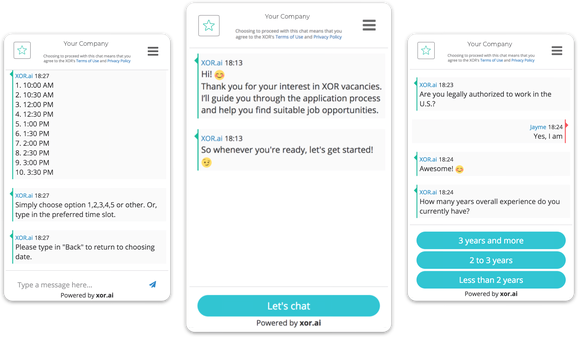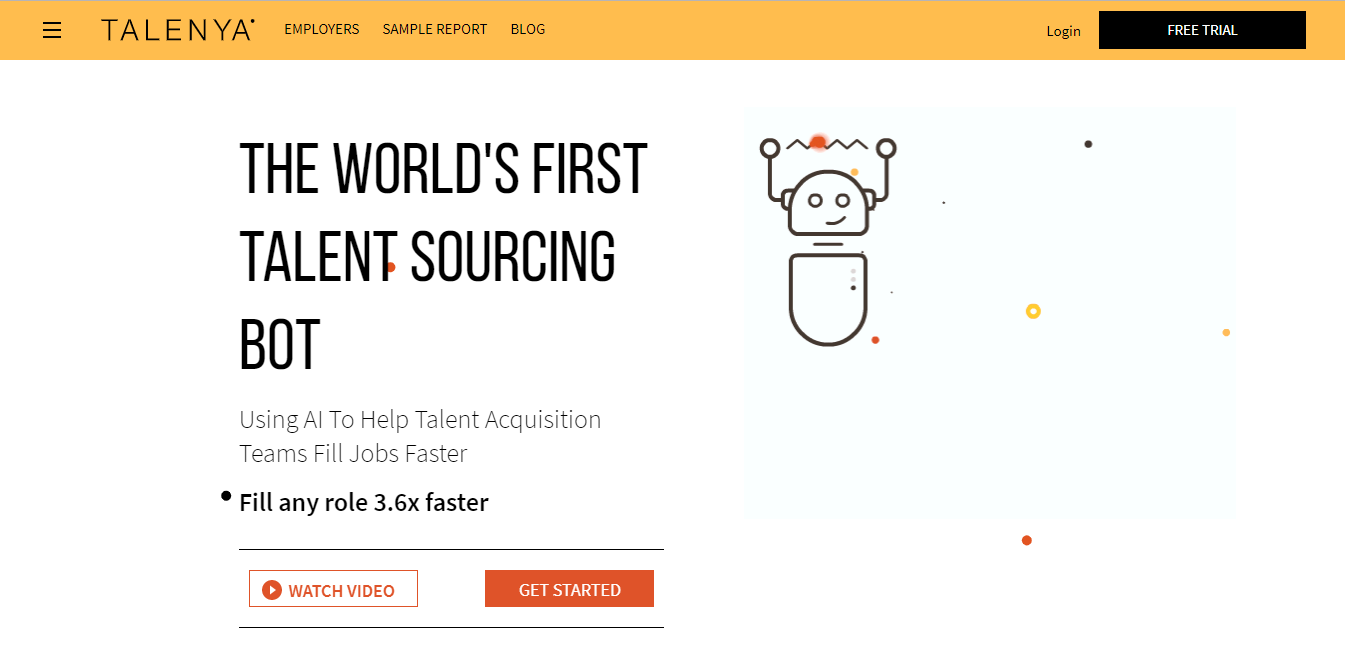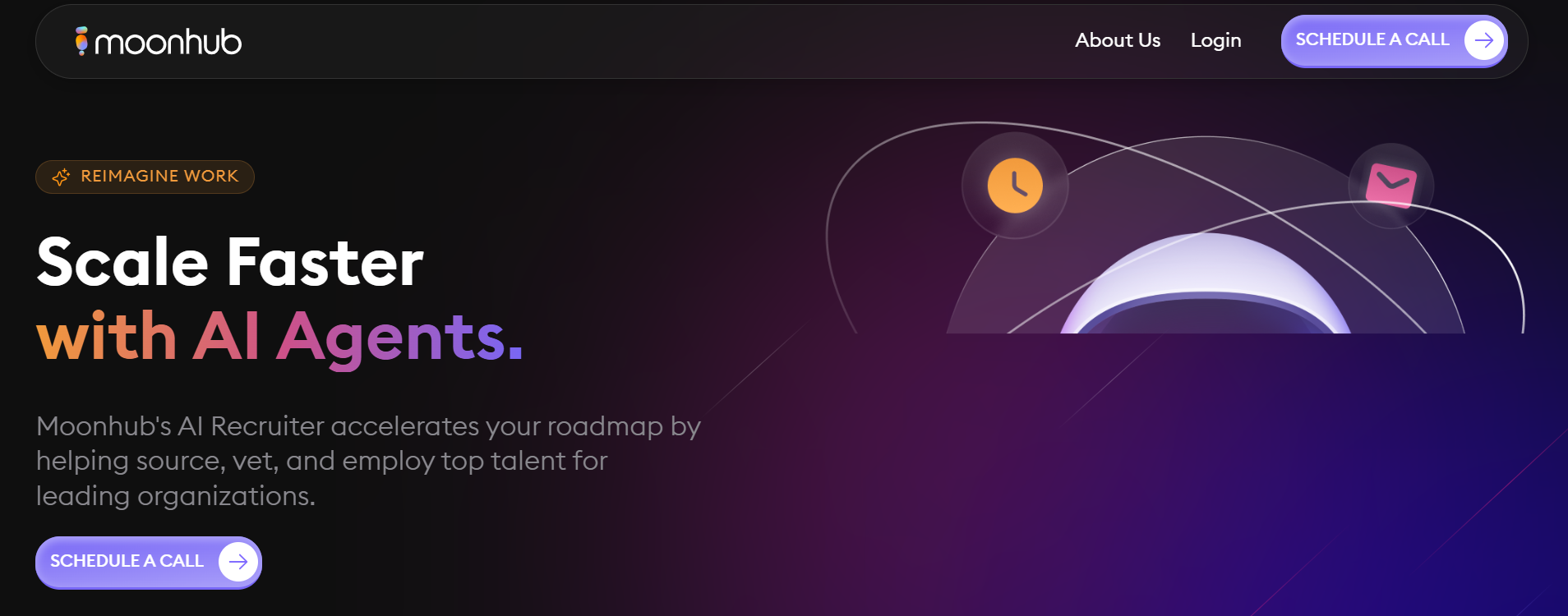-
 美国
美国
【美国】初创公司Workiz获500万美元A轮融资
Workiz是一家初创公司,其软件可帮助现场服务专业人员管理其工作,该公司表示已完成了500万美元的A 轮融资。资金由Magenta Venture Partners领投,投资者Aleph也参与了。该公司宣布启动Workiz Voice,一项由Amazon Alexa支持的功能,允许使用语音命令控制该应用程序,从而使其外勤服务人员在开车时使用更安全。
Magenta Venture Partners 普通合伙人Ran Levitzky将加入Workiz的董事会。A轮融资迄今已使Workiz的总资金达到730万美元。该公司表示,去年增长了247%。首席执行官Adi Azaria表示,该公司目前在美国和加拿大拥有成千上万的客户。许多是家庭或设备维护公司,包括锁匠、车库门维修、垃圾清除、家电维修和地毯清洁业务。
Trinity Air Medical在内的医疗运输公司也使用该软件来管理对时间高度敏感的器官捐赠的送达。该公司的目标是员工少于50人的现场服务业务,但可以扩大到拥有更多技术人员和特许经营权的组织。
Workiz的新资金正在其自动化平台上用于现场服务人员和Workiz Voice,以及用于其北美团队和运营部门的招聘。
这家初创公司由Saar Kohanovitch、Idan Kadosh和Erez Marom于2015年成立。Kadosh和Marom在加利福尼亚州圣地亚哥从事锁匠工作已有15年以上。他们对可用的现场服务管理软件选项以及对笔、纸和Excel电子表格的依赖来管理业务感到沮丧。他们还携带多部手机,因为大多数客户约会都是通过电话安排的,他们无法隐藏自己的个人号码。
创建Workiz的目的是为现场服务公司提供全套工具,包括监视技术人员与客户之间的互动,保留客户电话和短信的详细记录,向客户发送提醒,跟踪广告支出和效果以及处理信用卡付款的功能。
“在Workiz,我们有一个将商人转变为业务专业人员的愿景,而Workiz平台能够成功做到这一点。虽然75%的小型企业在开业的头五年内就关闭了,但使用Workiz的企业却可以将这一数字降低到仅20%,” Azaria说。
大约52%的现场服务公司仍依靠纸和笔来管理其业务,这为Workiz提供了增长机会。为了使他们切换,Workiz提供了免费的入职帮助,可以在短短的一到两天内完成。该软件与QuickBooks或CSV文件同步。
这家初创公司表示,Workiz Voice是市场上同类产品中的第一个功能,它使员工能够查找工作时间表、分类线索,与团队成员或客户进行沟通并找到下一份工作的方向。它有助于Workiz Voice区别于Jobber或HouseCall Pro等其他现场服务管理软件。
Levitzky在一份新闻声明中表示:“我们一直在寻找令人振奋的公司来转变行业,而Workiz完成了所有的任务。鉴于实地服务行业的随需应变性质,该公司的做法为各种规模的企业提供了公平的竞争环境,使它们能够更好地保障和管理就业机会。”
以上由AI翻译,仅供参考!
作者:Catherine Shu
来源:https://techcrunch.com/2019/10/30/field-management-software-startup-workiz-raises-5-million-series-a/
-
 美国
美国
【美国】零工招聘平台Fountain获得了2300万美元的融资
Fountain是零工和小时工的招聘平台,此次宣布完成由DCM领投的2300万美元B轮融资,51job和现有投资者Origin Ventures、Uncork Capital等参与了此次融资。这使公司的融资总额达到了3400万美元。作为融资的一部分,DCM联合创始人David Chao将加入Fountain的董事会,而DMC合伙人Kyle Lui将成为董事会观察员。
不断变化的劳动力
绝大多数劳动力是轮班制或小时工。事实上,全球85%的劳动力,即近27亿人,是按小时计酬的,仅在美国,就有8000多万按小时计酬的工人。由于低失业率、立法和自动化等因素,这部分劳动力在不断发展,预计到2030年,将有近三分之一的工作将实现自动化。
此外,这些员工中有许多人从事不止一份工作,经常用其他零工或小时工来补充主要角色。不出所料,零工和自由职业者的经济增长速度是其他劳动力的三倍,到2020年将占劳动力的43%。
Fountain的联合创始人兼首席执行官Keith Ryu说,很明显,人们的工作方式正在改变,但是公司雇佣小时工的流程却没有改变。从这个群体中招聘员工与为公司招聘员工有着根本的不同。其中90%的人没有使用LinkedIn, 40%的人在完成申请后没有反应。这些员工中有许多人同时从事两到三份工作,他们需要一种简单、自动化和移动的方式来申请和面试一份新工作。
Fountain的解决方案
成立于2015年,当时正值零工经济的初期,Fountain现在处理超过100万份申请,每个月为其客户提供15万个小时和零工职位,其中包括Taco Bell特许经销商Golden Gate Bell、chick - fila、Lime、Safeway等。自成立以来,Fountain已经创造了400多万个工作岗位。
Fountain的客户利用其技术简化了整个候选人招聘流程,从采购、筛选、面试安排、处理背景检查、SMS通讯到文档签名和入职。
DCM联合创始人兼合伙人David Chao说:“作为在招聘方面无与伦比的领导者,Fountain已经改变了数十亿求职者与雇主互动的方式。” DCM合作伙伴Kyle Lui补充说:“Fountain具有出色的资金利用效率,并拥有一流的客户保留率。”
Fountain将在研发方面投入最新一轮资金,以加速为现有客户开发产品,并扩大其在餐饮和酒店行业的业务范围。
Ryu说:“迄今为止,我们取得了巨大的成功,但我们对自己的未来更加兴奋。” “我们的团队很高兴能有更多资源来继续帮助我们的客户满足他们的人才需求,并进一步履行为全球员工提供机会的使命。”
以上由AI翻译,仅供参考!
作者:Mayuri Chaudhary
来源:https://www.hrtechnologist.com/news/recruitment-onboarding/fountain-raises-23m-to-transform-gig-and-hourly-recruiting/
-
 美国
美国
【美国】以中小企业雇主为中心的福利平台Sana Benefits获得了630万美元的融资
奥斯汀公司Sana Benefits希望通过更高效的软件来颠覆医疗保险行业,该公司表示已完成了630万美元的种子轮融资。
该公司加入了许多新贵,重新建立了一个医疗保健系统。这些初创公司包括像Oscar Health、Clover和Bright Health这样的公司,他们在过去几年里完成了数亿到数十亿美元的资金。他们中的大多数都将重点放在个人身上,而不是覆盖一半美国人的雇主计划。
Sana的与众不同之处在于,它是为数不多的针对雇主的新公司之一,特别是针对中小型企业(一千名或以下雇员)的市场。Sana首席执行官Will Young表示,这个小型企业市场覆盖了所有员工的三分之一,市场总额超过2000亿美元。Collective Health已完成了超过4亿美元的融资。它也针对雇主,但仅针对大型企业客户。
该公司的出现是如何通过应用硅谷标准的现代现成软件仍然可以破坏像健康这样的庞大行业(占美国经济的五分之一)的最新例证。以Sana为例,它采用了亚马逊的符合HIPAA的云架构、Rails和React之类的东西,并将现有的行业数据系统复制到一个基于Web的应用程序中—该程序可自动执行大多数其他公司仍在使用人工的任务。
Young说:“医疗保健通常是一个沉重的行业。” 他估计,浪费性支出每年使美国医疗保健系统损失约1万亿美元,其中很大一部分来自不必要的行政费用。
Young表示,由于Sana具有自动化功能,因此可以以较低的管理成本进行运营,从而使其降价幅度比市场平均水平低30%。
Young说,较低的成本已帮助它吸引了数十个客户(包括Door和Abodewell),总共有数千名会员。根据Young的说法,它的收入达数百万美元,而去年没有。通过与Plushcare、Maven诊所、Beam Dental、ClassPass和Calm合作,它为客户提供免费的优质服务。
资金来自Gigafund和Trust Ventures,它们刚刚投资了360万美元,使种子轮融资总额达到630万美元。Young说,这两个基金都专注于改变产业的投资。
Sana可以通过自动化裁定97%的案件中的索赔来降低成本,这意味着绝大部分案件都不需要人工。
该公司决定从头开始构建其软件,并从现有的行业系统中提取数据,从而使自动化变得容易。
与此形成鲜明对比的是,该行业的其余大多数公司,保险公司通常都依赖于臃肿的遗留应用程序,这些应用程序通常在1990年代编码,并且彼此之间不兼容。大多数保险公司在承保、会计、会员注册和理赔等方面采用不同的软件。这些系统使用笨拙的FTP服务器和旧式数据格式,这些数据经常被延迟。
Sana的联合创始人兼技术负责人Nathan Hackley表示,相比之下,Sana已对数据进行了集成,因此任何查看它的人“都能看到单一的事实来源”。
为了提高索赔流程的效率,Sana在其索赔部门仅雇用了两名员工:一名是索赔负责人,负责支付索赔,另一名是工程师,与该人员一起将所有以后类似的索赔自动化。因此,实际上,索赔负责人实际上是在支付索赔以及所有将来的索赔。Young表示,公司只能长期雇用两名员工,而其他具有类似业务的公司可能要雇用六到七个人。
Sana在整个企业中采用了相同的有效方法,将运营人员与自动化工程师配对。例如,在Sana的承销业务中,只有一个专职人员。Young说,这个人的工作相当于其他公司雇用12人的工作。“我们只是获取员工信息,系统会给出正确的答案……我们不会来回发送Excel电子表格。”
Young表示,从头开始构建软件需要更大的前期投资,大约需要一年半的技术工作,还有100万美元的资本用于安装成本,需要数万行代码来垂直整合医疗保险软件。这涉及到与行业顾问的定期会议,以确保Sana正确编码了法规要求的边缘案例。
到目前为止,该公司已避免使用AI或机器学习,部分原因是大多数AI模型都存在黑盒问题。“您将数据放入其中,很难知道为什么系统会提供答案”,Hackley说。但这也是因为与每个索赔相关的数据仍然有限,因此更容易编写一个基于规则的自动化系统,Hackley补充说。
最后,在面向客户方面,Sana与数据供应商合作,比使用精算表的传统方法更有效地校准费率。它可以根据数据分析将人们引导到最好的医院,并在更具成本效益的情况下使用远程医疗。
以上由AI翻译,仅供参考!
作者:MATT MARSHALL
来源:https://venturebeat.com/2019/10/23/how-to-get-70-of-your-invoices-paid-within-24-hours-vb-live/
-
 美国
美国
【美国】OKR公司Ally获得了1500万美元的B轮融资
总部位于贝尔维尤的初创公司Ally今天上午宣布了B轮融资,由Tiger Global领投了1500万美元。这家专注于OKR的软件初创公司在7月(八月宣布)进行了A轮融资,由Accel领投了800万美元。
起源
Ally创始人Vetri Vellore过去曾在Microsoft工作,解释了他新公司的所在地。(微软总部位于附近的雷德蒙德。)尽管Vellore在软件巨头那里呆了十年多,但他还是想自己建立一家公司。
因此,他创立了Chronus,后来将其出售给一家私募股权公司。顺便提一下,Chronus专注于指导,Vellore说他在Microsoft得到了很多指导,他认为这具有“超高ROI”。
Vellore对人们工作方式的兴趣包括了解产品开发是如何变化的,即软件开发模型是如何从瀑布方法(大型的、不规则的发布)转变为敏捷方法(小型的、快速的发布)的。
为了寻找有关业务如何变化的其他模型,Vellore遇到了OKR,这是一种用于公司计划的简洁方法。
OKRs
“ OKR”是“目标和关键结果”的首字母缩写。这个概念很有名(由于Google的帮助),虽然执行起来比较棘手,但是有些容易理解。每个目标都有许多关键结果,通常会在下一季度实现这些目标。
一家糖果公司想要成为世界上最受欢迎的糖果公司,可能会有一个目标,那就是用新食品来取悦顾客。因此,它可能会为此目标设定关键的结果,例如在该季度发明和销售三种新包装的美食,在整个产品线中维持其当前的客户满意度得分,并添加新的会员模型以进一步巩固自身地位进入消费者的口中。
每个关键结果应随季度进展情况进行跟踪,以帮助有问题的OKR指导的公司在实现其目标时对其自身进行评级。在本季度末,对每个关键结果进行评分,为每个目标提供最终得分。
这在理论上很简单。在实践中,设置智能okr比你想象的要难。不仅让员工参与规划模型,而且定期跟踪他们针对关键结果所做的努力,这可能会令人厌烦。
Ally希望使这一切变得容易一些。根据Vellore的说法,该公司希望通过集成到Slack和其他日常使用工具中,“使人们轻松进入OKR”,帮助员工制定明智的目标和关键成果并保持最新状态。
三轮,一年
回顾一下,Ally在一月份完成了300万美元的种子轮。接下来是今年夏天的800万美元A轮融资和此次的1500万美元B轮融资。当被问及为什么他再次募集资金,以及Tiger Global为何领投这样相对温和的融资时,Vellore说,领投Ally的A 轮融资的Lee Fixel,向他的前任雇主(Tiger Global)介绍了该公司。
项目进展很顺利,Ally现在完成了1500万美元的融资,而不是Vellore假设的可能在一年半的时间里获得3000万美元的融资。
Ally的A轮投资者将他介绍给了一家大型对冲基金,他很快决定将资金投入Ally,因为这看起来像是一个有吸引力的赌注。在2019年,比正常时机更快速的风险投资并不罕见。
Ally表示希望为企业的运营建立一种“操作系统”,因此正在迅速招聘(第三季度员工人数翻了一番)并扩大了客户群(同期有100个新客户)。
以上由AI翻译,仅供参考!
作者:Alex Wilhelm
来源:https://news.crunchbase.com/news/ally-raises-15m-series-b-to-scale-its-okr-focused-service/
相关链接:【美国】OKR公司Ally完成800万美元A轮融资
-
 美国
美国
【美国】企业服务软件平台Pendo获得E轮融资1亿美元,晋级独角兽
据悉,总部位于北卡罗来纳州的客户参与度分析软件创业公司Pendo完成1亿美元E轮融资,交易后估值达10亿美元,晋级独角兽。
该轮融资由硅谷风投机构Sapphire Ventures领投,泛大西洋投资(General Atlantic)、老虎环球(Tiger Global)等参投,距离Pendo的5000万美元D轮融资仅13个月。
Pendo为客户收集消费者数据,跟踪消费者在网站和移动APP上的行为,如计算出电商客户在结账前进行了多少次点击。该公司目前拥有1200多名客户,包括威瑞森电信(Verizon)、Salesforce、密歇根州最高法院等知名组织。
“我们致力于帮助企业开发出用户喜欢的软件,”Pendo首席执行官兼联合创始人托德·奥尔森(Todd Olson)表示,“我们认为,无论是购买新车还是其他数字体验,软件将成为我们生活不可或缺的一部分。”
Pendo表示将利用新资金“投资销售和市场营销,以加速全球扩张;进行工程投资和收购,以加速产品开发。”
Pendo成立于2013年成立,迄今一共获得2.06亿美元风险投资,具体情况如下:
2015年10月,A轮1250万美元,估值2380万美元;
2016年12月,B轮2000万美元,估值1亿美元;
2017年7月,C轮2500万美元,估值2亿美元;
2018年9月,D轮5000万美元,估值10亿美元。
在成立以来,Pendo取得了令人瞩目的增长,其三年的复合年增长率达到惊人的334%,员工数也从2018年9月的225人增加到如今的375人。Pendo还表示,在今年第二季度,其预订量同比增长了108%。目前,Pendo在罗利(北卡罗来纳州首府)、纽约、旧金山、伦敦、英国谢菲尔德和特拉维夫设有办事处。
今年5月,Pendo完成了公司历史上的第二笔收购,对象是英国产品需求情报提供商Receptive.io。Pendo称这不会是其最后一次收购。它在2017年收购了以色列移动参与创业公司Insert。
目前,Pendo正在考虑IPO。
作者:创头条
来源:http://www.ctoutiao.com/2374976.html
-
 美国
美国
【美国】招聘聊天机器人平台Xor完成了840万美元的融资
总部位于旧金山的初创公司Xor正在为招聘人员和求职者开发一个人工智能聊天机器人平台。该公司宣布,它已经获得了840万美元的融资。该轮由SignalFire领投,参与的还有Gurtin Ventures和Twin VC。去年,Xor在美国的销售额增长了两倍,达到了200万美元的年度经常性收入,并与15个国家的100多名客户达成交易,其中包括埃克森美孚、宜家、百特人事、喜力、IBS、阿尔迪、霍夫、麦当劳和玛氏。
联合创始人兼首席执行官Aida Fazylova表示,新资金将使Xor拥有52名员工,并加速即将推出的产品的开发,该产品旨在使内部流程自动化,例如入职、文书工作备案,以及评估工作满意度和流失率。她说Xor的几个客户已经在未来几个月内广泛推出之前试用了该解决方案。
“ Xor是出于我的个人痛苦而诞生的。在我长期的招聘生涯中,我注意到我75%的工作时间都花在例行和重复性工作上,例如安排面试,简历筛选,在电话面试中一遍又一遍地问同样的问题,” Fazylova说。“我成立公司的初衷是让招聘人员专注于人与人之间的联系,面试应聘者并为公司吸引最优秀的人才。同时,人工智能负责重复性任务,并为每个候选人提供24/7全天候个性化服务。我们很荣幸能从SignalFire和其他出色的投资者那里获得支持,他们将帮助我们推动使命,使每个人的招聘体验更好、更透明。”
Xor由Fazylova(具有招聘背景)和Nikolay Manolov(连续企业家)于2016年成立,并提供了一个聊天机器人,可以自动完成乏味的招聘任务。例如:安排面试,分类申请,并通过电子邮件、文本、Facebook Messenger和Skype等消息传递应用程序回答问题。同名的Xor(托管在Microsoft的Azure上)利用500多种合适的候选人资源,并利用在17种不同HR和招聘数据集上训练的103种不同语言和算法,自动筛选这些候选人。
借助Xor的后端工具,招聘经理可以使用可视化设计工具以无代码的方式建立对话流程,并安排有关即将面试的短信提醒。他们还可以将Xor聊天机器人与现有的申请人跟踪和候选人关系管理系统(例如Talantix,Tempworks,Lever,Avature,Taleo和JazzHR)集成在一起,此外还可以提供Google日历和Outlook等日历提供程序。
Xor在声称可自动完成招聘流程75%的聊天机器人Mya和与纽约大学共同创立的同时提供招聘和职业咨询聊天机器人的招聘平台Wade&Wendy竞争中。但是Xor在短短三年内就取得了令人瞩目的发展势头,迄今已预先筛选了250万名求职者,满意度达到了99.3%。
SignalFire联合创始人兼董事总经理Ilya Kirnos说:“ Xor使雇主能够更好,更快地招聘,同时为求职者和雇员提供了一种在招聘过程中和工作中进行更好交流的方式。” “我们相信,每家公司都将使用机器学习和对话式AI来简化其招聘和人力资源流程,而Xor处于这一运动的最前沿。这是一个巨大的机会,Xor拥有赢得这一市场的领域和技术专长。”
根据Grand View Research的数据,聊天机器人市场预计到2025年将达到12.3亿美元,而且它的持续增长有一个很好的理由:Salesforce最近的一项调查显示,大约69%的消费者更喜欢用聊天机器人与品牌进行快速沟通。此外,Gartner预测,到2020年,它们将为85%的客户服务交互提供动力。
以上由AI翻译,仅供参考!
作者:KYLE WIGGERS
来源:https://venturebeat.com/2019/10/11/xor-raises-8-4-million-for-ai-powered-job-candidate-recruitment-and-screening/
-
 美国
美国
【美国】能源劳动力平台RigUp完成了3亿美元的D轮融资
RigUp是能源行业最大的按需服务和熟练劳动力市场,已获得了3亿美元的D轮融资,该轮融资由Andreessen Horowitz(a16z)领投,现有投资者包括Founders Fund,Bedrock Capital和Quantum Energy Partners。新的投资者包括Baillie Gifford和Brookfield Growth Partners。Andreessen Horowitz的普通合伙人David George将加入RigUp的董事会。
“ RigUp独自为急需的技术服务于能源劳动力市场,并从根本上实现了供需的更好匹配,从而大大缩短了寻找合适项目的独立承包商和能源公司的租赁时间和知名度我们希望与Xuan,Mike和RigUp团队合作,因为他们继续扩大规模并扩大他们的市场机会。”a16z的普通合伙人David George表示。
RigUp成立于2014年,现在在美国拥有300多名员工。RigUp的平台将合同工与在上游,可再生能源,中游和下游行业运营的能源公司相匹配,以期有效地采购和管理熟练的贸易劳动力。2019年,RigUp平台上的服务总收入将超过20亿美元,比2018年增长200%以上。
在能源行业中,蓝领劳工很难找到且需求量很大。
“现场工作主要由高技能的独立承包商组成,通常由分散的小型实体公司组成。对于需要快速进行项目人员管理和人工成本管理的公司而言,这种方法效率低下,并且无法使独立承包商获得所有可用机会。”RigUp首席执行官兼联合创始人宣勇说。
RigUp的使命是增强为世界供电的人们的能力。该平台使合同现场工作人员可以访问最大的能源公司网络,灵活的付款条件,并可以简化与提供全面医疗保健福利和培训的合作伙伴的访问。
“ RigUp一直在为直到现在还无法利用技术提供的扩展机会的员工服务。RigUp涵盖了美国大陆每个油气盆地,每个主要风能和太阳能地区的100多个能源行业服务类别。“这为工人和希望雇用的能源公司打开了巨大的潜力。”RigUp首席运营官兼联合创始人Mike Witte说。
通过RigUp,能源公司可以通过最大的合格工人网络来寻找劳动力,通过可定制的合规解决方案确保工人保持最新的合规要求,并通过无缝的端到端支付解决方案协调向这些工人的付款。
RigUp计划使用最新投资来继续扩展至可再生能源,中游石油和天然气以及下游业务。
“在短短几年的时间里,RigUp已经成为最大的市场,为承包商、服务提供商和能源行业运营商提供下一代劳动力。作为美国中游、可再生能源和公用事业资产的主要拥有者,我们相信RigUp有巨大的机会复制它在石油和天然气领域的成功,并扩展到其他相邻的垂直领域。我们期待与里格普的人才团队密切合作,共同拓展业务。”Brookfield Growth Partners董事总经理Josh Raffaelli说。
以上由AI翻译,仅供参考!
作者:Carly Curran
来源:https://blog.rigup.com/series-d-funding
-
 美国
美国
【美国】 员工满意度追踪软件Emplify完成了1500万美元的融资
数据驱动的员工敬业度改善公司Emplify宣布获得由成长股权投资者Edison Partners领投的1500万美元的融资。该公司计划将资金重新投资到其核心产品和服务创新上,并扩大其销售和营销团队以推动未来的增长。包括Allos Ventures,Cultivation Capital,Mark Hill,Gutbrain Ventures的Bob Davoli和4G Ventures总经理Bill Godfrey在内的先前投资者也参加了这一轮融资。
Edison Partners的普通合伙人莱恩·齐格勒(Ryan Ziegler)说:“ Emplify正在科学地解决雇主如今面临的最相关问题:建立一种吸引、聘用和留住人才的文化。” 已定义的业务成果与可衡量的业务改进相联系,这些改进提高了客户在不到12个月的时间内的体验,这是不言而喻的。圣地亚哥·哈拉米略(Santiago Jaramillo)和他的团队已经建立了一个测量和不断提高员工敬业度的优秀解决方案,我们期待着帮助Emplify推进其使命。
除获得融资外,Emplify还聘请了企业销售资深人士George Tate作为销售高级副总裁,以推动公司的发展。作为Paylocity的前销售副总裁,泰特(Tate)在将公司从1700万美元的私人公司发展为市值5.5B美元的行业领先的上市公司中发挥了重要作用。在Paylocity的12年间,他将销售团队从五个扩大到了270多个销售代表,并将收入增加到了1.05亿美元。
自成立以来,Emplify的年均收入平均增长了超过275%,并已收集了超过1400万个独特的员工数据点。该公司发现,在与Emplify合作的第一年内,客户看到员工敬业度分数连续第二个季度提高,员工流失率下降多达50%。许多人还报告说,使用Emplify可以更清晰,更自信地改善员工敬业度,从而节省了数十万美元的人工成本并增加了利润。
Emplify首席执行官兼亚马逊畅销书《敏捷参与》(Agile Engagement)的作者圣地亚哥· 贾拉米洛(Santiago Jaramillo)说:“人力资源技术领域的众多大公司都认为,仅仅添加调查功能就可以有效地回应员工的意见。” “现实情况是,糟糕的调查经历对组织造成了很多损害。爱迪生(Edison)的成长性投资使乔治·泰特(George Tate)担任销售高级副总裁,而Emplify的客户业绩则证实了我们的假设:业务和人员领导渴望获得一种收集,分析和实施员工反馈的方法,这种方法实际上可有效地改善员工敬业度和绩效。”
Emplify是唯一一家将软件与人类数据分析以及专家指导相结合的员工敬业度公司。该解决方案使用员工调查来对雇主在自主性、反馈和心理安全等17种员工敬业度驱动因素上的表现进行评分。雇主可以采用多种方式对数据进行细分,最常见的方式包括按部门、经理、世代、性别和角色进行划分。员工敬业度策略师(类似于数据分析师和高管教练的角色)可帮助业务经理分析调查结果并制定行动计划以显著提高敬业度。
以上由AI翻译,仅供参考!
作者:Mayuri Chaudhary
来源:https://www.hrtechnologist.com/news/employee-engagement/employee-engagement-improvement-company-emplify-raises-15m-to-drive-future-growth/
相关文章链接:
员工满意度追踪软件Emplify今日宣布筹集750万美元融资
-
 美国
美国
【美国】员工绩效管理公司Lattice完成了2500万美元的融资
总部位于纽约的对冲基金Tiger Global Management领投了Lattice的 2500万美元C轮融资,Lattice是一种员工绩效和敬业度管理工具,现有投资者也参与其中。
据该公司联合创始人兼首席执行长阿尔特曼(Jack Altman)说,这轮融资对公司的估值约为2亿美元,而就在六个月前,该公司刚刚完成了由Shasta Ventures领投的1,500万美元的B轮融资。2015年,阿尔特曼和埃里克•科斯洛(Eric Koslow)创建了这家人力资源工具公司。该公司还得到了兴盛资本(Thrive Capital)、Slack基金(Slack Fund)、科斯拉风投(Khosla Ventures)和Y Combinator的支持。
和今天许多完成风险投资交易的初创公司一样,Lattice在接到投资Spotify、Glassdoor和Flipkart等公司的Tiger Global的约翰•库尔提斯(John Curtius)的接洽时,并没有积极融资。据Altman说,包括优惠条款在内的大量资本注入并没有遭到拒绝,相反,Lattice完成了这笔交易,并计划在销售和营销方面投入更多现金,以及其他一些机会。
Altman告诉TechCrunch:“保持(扩展)该平台,并将其扩展到其他人员管理的愿景使Tiger感到兴奋。”
迄今为止,Lattice已获得了总计4920万美元的风险投资资金,今年的员工人数和付费用户数量已经翻了一番,已达到160,000名。SaaS业务已开发了绩效管理软件,该软件使员工可以反思他们的绩效并接收经理和同事的反馈。该工具还使员工及其经理能够制定一对一会议的议程,向其他员工表示赞赏,并草拟目标和OKR。
“为了当今竞争人才,您确实需要建立人们想要工作的公司类型”Altman说。
去年秋天,这家位于旧金山的初创公司推出了Lattice Engagement,使人力资源团队可以更好地了解员工与公司的联系程度。上个月,该公司推出了Lattice Pulse,它与Lattice Engagement和Lattice Performance相结合,可提供对员工和公司文化的实时洞察力。
Altman解释说:“您可以不做这些事情而逃脱,但是并不能优化这一关键问题,这就是您的员工的状况。” “如果您不关注员工的表现或他们的感受,那就像不听客户的话。您的员工就像您的内部客户。”
莱迪思采用SaaS商业模式,每位用户每年收费约100美元。该公司主要销售给中小型企业,包括Glossier和Asana以及大约1400家其他企业。今年,莱迪思与最大的客户之一Slack达成了交易。随着时间的推移,该公司计划将产品出售给大型企业。
Altman说:“我的希望是,我们能够继续在现有的基础上增加更多的产品和功能。”我们有太多的想法,却没有足够的人去创造它们。
以上由AI翻译,仅供参考!
作者:Kate Clark
来源:https://techcrunch.com/2019/10/10/tiger-global-values-people-management-tool-lattice-at-200m/
-
 美国
美国
【美国】人工智能技术招聘公司Talenya完成了650万美元的融资
招聘技术公司Talenya完成了650万美元的融资。该轮融资由Ibex Investors领投,现有的两个风投投资者Lool Venture和Gal Ventures参与了此次融资。其他参与者包括East Wind Capital,Arc Arc和几个现有的天使投资人。Talenya计划使用投资资金来扩大其研发和销售业务。
该公司开发了由人工智能(AI)驱动的机器人,这些机器人是虚拟招聘人员,能够通过收集和处理来自数百个在线资源的信息来寻找合适的人才来担任公开职位。
Talenya的漫游器还能够联系合适的候选人,并邀请他们代表潜在的雇主参加工作面试。
Talenya的技术可以识别传统工具通常无法识别的候选人,并且还可以预测合格的候选人接受新工作机会的可能性。该公司的客户是领先的国际公司。
Talenya的联合创始人兼首席执行官Gal Almog说:“ Ibex的投资是对Talenya的竞争优势及其成为招聘技术全球领导者潜力的认可。” “招聘人员越来越多地使用基于AI的机器人来极大地提高其生产力和招聘质量。Talenya有机会领导这场全球革命。”
Ibex Investors总裁Brian Abrams表示:“只要您能够利用AI来改善以前由人为驱动的流程,通常都是成功的秘诀。” “我们相信Talenya将从根本上改变公司招聘顶尖人才的方式。我们很高兴能领导这一轮工作,并使Talenya发挥其全部潜力,向全球扩展,并为更多的财富500强客户提供服务。”
Talenya由Gal Almog和Doron Segal于2017年创立。该公司在以色列和新泽西州的霍博肯设有办事处。
以上由AI翻译,仅供参考!
作者:Talenya Inc
来源:https://www.prnewswire.com/news-releases/talenya---the-ai-technology-recruitment-company-completes-6-5-million-funding-round-led-by-ibex-investors-300932858.html
 扫一扫 加微信
hrtechchina
扫一扫 加微信
hrtechchina
 美国
美国
 美国
美国
 美国
美国
 美国
美国
 美国
美国
 美国
美国
 美国
美国
 美国
美国
 美国
美国
 美国
美国





 扫一扫 加微信
hrtechchina
扫一扫 加微信
hrtechchina




